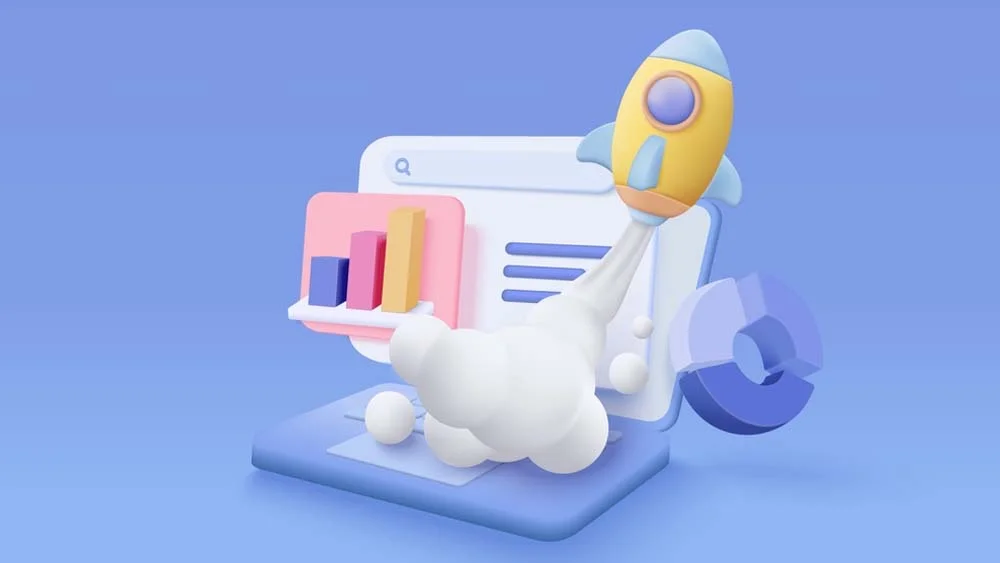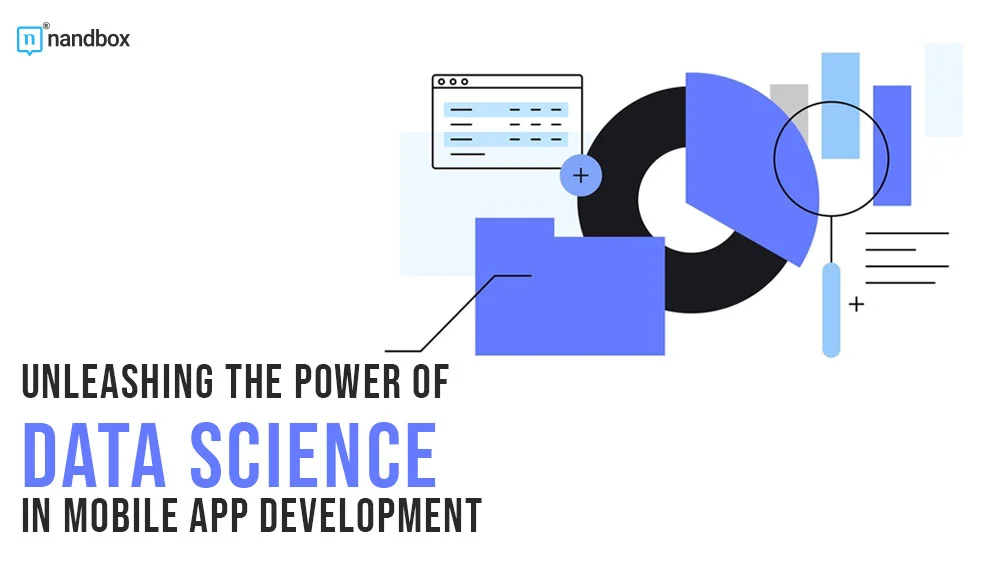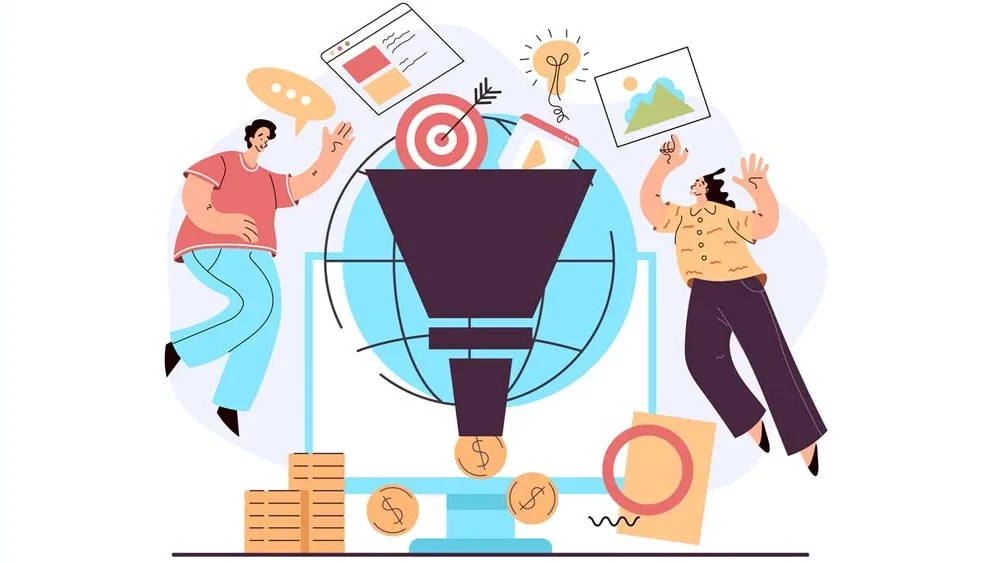Data is a hugely vital element, and it does make sense since we live in such a data-driven world. Nearly all industries depend on data significantly in all aspects and operations. It is all about exchanging data nowadays, either between businesses and individuals, individuals and individuals, or businesses and businesses. It is that one part of the cycle that makes it complete, and you can never overlook it. Since data is this significant, experts had to reflect this and make it much easier for businesses to understand the proper way to deal with incoming and outgoing data. That is why a new field of study, data science, appeared and gained recognition. It eventually became a notable major that people eagerly studied. But what does data science have to do with mobile app development? This is what we are going to explore in this article!
What is Data Science?
Data science is a major and essential field of study that aims to break down and explain everything concerning data. This includes gathering, analyzing, studying, and extracting as many useful insights as possible. The process of applying data science is very complicated. It requires much effort and time to be able to go through all these processes. For instance, gathering data from customers and users requires researching and gathering primary raw data from surveys, interviews, and so on. On the other hand, it also calls for some security data from previous research and articles. Data science addresses important concerns and questions that each business has. This includes the reason behind a certain occurrence, who it would affect, and methods to overcome it.
Data science merged with mobile app development in accordance with the huge demand that the app market is witnessing. With huge demand, the amount of data that apps generated and received became much larger. The only way that app developers could deal with this amount is by incorporating data science, which could help them make the most of it. This merger included other branches of data science, such as Big Data.
Core Technologies of Data Science
Data science is way more than it appears to be. It is not limited to processes and methods of analyzing data. Little do you know that it is the big umbrella under which many exceptional technologies lie. So, let us explore some of these technologies that data science includes
The first technology is machine learning. The duo of machine learning and data science is almost out of this world. The idea of machine learning totally focuses on learning from and analyzing data. Which is ideal and matches all the requirements of data science. Usually, machine learning systems are trained on many sets of data. As it helps identify the essence of the information they are working with. Machine learning is used in science data for identifying patterns and predicting user behavior.
Another technology used is the Internet of Things or IoT. IoT is another technology that focuses mainly on data. It is the process of establishing networks between devices so that they can collect and exchange information from users and operate accordingly. IoT devices and apps can collect real-time data based on user interactions, which helps businesses make informed decisions. This is especially vital for data science. It helps streamline the process and generate new methods for dealing with data. Additionally, it plays the main role when it comes to predictive maintenance.
Lastly, text mining is also a core technology of data science. Text mining is the process of analyzing sets of unstructured data in a structured format where insights can be extracted more easily and efficiently. Text mining plays a major role in data science as it provides a more seamless way for data extraction. As it makes identifying patterns and making informed decisions for apps and businesses as easy as pie.
When It Comes to App Development, What Role Does Data Science Play?
Data science has had a significant positive impact on mobile app development in various ways. Here are some key ways in which data science has transformed and improved the app development process:
User Insights and Personalization
With the use of data science, app developers may gather and analyze information about their users. This includes their habits, preferences, and demographics. This information can be utilized to provide users with personalized features, such as tailored content recommendations, timely reminders, and intuitive navigation. Increased user involvement and satisfaction are common outcomes of thoughtful personalization.
Predictive Analytics
Data science provides app developers with the tools they need to construct models for predictive analytics that foresee users’ activities and requirements. Predictive models, for instance, can be used in e-commerce mobile apps to recommend items to customers based on their browsing and purchasing behavior. Additionally, predictive models can aid in diagnosing health problems in healthcare apps by analyzing user input and past data.
Optimized User Experience
Developers can improve the usability of their mobile apps by analyzing user feedback to identify issues and flaws and then making decisions based on that feedback. When app functionality and design are refined based on A/B testing and user feedback analysis, the final result is an app with a more user-friendly and accessible interface.
Performance Optimization

By employing data-science methods, mobile app performance can be monitored, and problems can be found from the beginning. With analytics, developers may track how users interact with their apps and fix any performance issues they find, such as slowdowns or crashes. This results in a sounder and improved app stability and credibility.
Fraud Detection and Security
When it comes to improving mobile app security, data science is absolutely vital. Machine learning algorithms, for instance, can spot fraud trends in financial apps to better protect user accounts and financial transactions. Unusual patterns may be discovered and highlighted for further investigation by keeping tabs on user activity, which provides users with the maximum level of security.
Cost Efficiency
Using data science throughout app development can assist in maximizing efficiency. Developers can save time and resources by prioritizing features that have been shown to be used more frequently than others, which is a conclusion that can be obtained through an examination of usage data.
App Store Optimization
Data science can be used to make apps more noticeable and easier to find in app stores. Better app store optimization can result in more app downloads by examining keywords, user reviews, and download patterns.
Health and Performance Monitoring
Data science is an invaluable tool for health and fitness apps. The Internet of Things and fitness apps can employ data science to track and analyze their users’ health and activity levels.
Business Insights and Monetization
Users’ demographics, tastes, and behavior can be better understood with the help of data science, which in turn can inform monetization strategies. Implementing proper pricing schemes, promotions, and in-app purchase models are all part of this process of studying and analyzing data.
Top Data Science Tools To Consider For Your Mobile App
Luckily, such an important field has many tools that make working in it accessible. As data science began to gain recognition, especially for applications, many useful tools emerged to make the incorporation of data science and all its technologies possible.
For instance, BigML is a popular data science tool that is based entirely on machine learning. It allows app developers to create their own models of merging machine learning and data science and enjoy endless capabilities and effective outcomes. This includes risk analysis, forecasting, and many more.
Another tool you could make great use of is Apache Spark. This comprehensive tool is ideal for any app developer who would like to conduct a thorough data analysis using all the technologies mentioned in data science and even more. Real-time analysis as well as machine learning capabilities allow app developers to get the most out of their data, no matter its volume.
Lastly, there is KNIME or Konstanz Information Miner, which is another excellent tool to consider. It is an open-source data analysis tool that is widely used by data scientists due to its reliability and flexibility. One thing that makes KNIME unique is its data integration capabilities, which allow users to generate data from all sources for analysis easily and swiftly. Additionally, with KNIME, you have access to numerous machine learning and data and text mining models that can be seamlessly incorporated into existing processes. Users can create and train prediction models, complete sorting and classification tasks, and assess model effectiveness and efficiency.
In Summary
Data science is a broad and comprehensive field of study that all sectors should consider. Not only does it simplify and aid in gathering and analyzing data, but it also helps them find new and advanced ways to improve their operations and processes. The app market considers data science as an invaluable tool and approach, given that all apps are based on data and input from users. Additionally, the exceptional merge of data science and advanced technologies like the Internet of Things and machine learning further progresses this field and makes it much more helpful. Now that you know the role of data science and the tools you can utilize, you can enhance your mobile app and development process to provide your users with an experience like never before.





